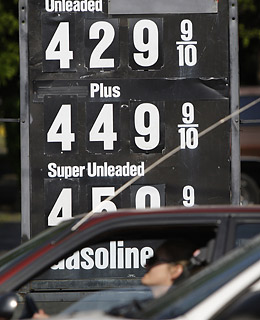
The world had long assumed that Americans were just unrepentant energy pigs. If gas prices went up, well, we kept our Explorers aimed at the horizon, and little changed. We truthfully didn't have lots of options. Unlike Europeans, we didn't have jobs we could bike to or convenient public transit. Gasoline prices never stayed high enough long enough to force those kinds of shifts in how we lived.
Now here we are. Gas prices are near $4 per gal., as no one needs to tell you, and they are likely to stay that way. Most of us still don't have the alternatives we need to adapt with grace, which means that many will adapt just by suffering. We will run out of gas on I-80, ease our minivans over to the shoulder and tell the kids everything is O.K. We'll fall behind on Visa bills to pay for gas so we can buy food made ever more expensive by energy costs.
But it's also true that Americans are finding options where there seemed to be none. They're ready to change — and waiting for their infrastructure to catch up. They are driving to commuter-rail lines only to find there are no parking spots left. They are running fewer errands and dumping their SUVs. Public-transit use is at a 50-year high. Gas purchases are down 2% to 3%. And all those changes bring secondary, hard-earned benefits.
"You suddenly are reminded how the economy works," says Eric Roston, author of a new book about energy, The Carbon Age. "Nobody wants high prices for oil. But there's also no faster mechanism to change behavior." The suffering will go on. But the story, like any good tragedy, is not without redemption.
— With reporting by Maya Curry